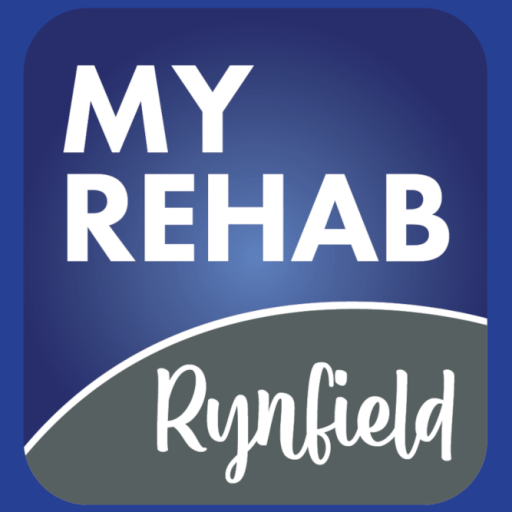
Family Therapy
Family Therapy
Family therapy can be a vital step in navigating the complexities of relationships within your family. At MyRehab, therapists create a safe space where you can openly discuss challenges and emotions. By fostering communication and understanding, you’ll start to uncover patterns that may be holding your family back. Curious about how this approach can transform your family dynamics? Let’s explore what makes MyRehab’s family therapy unique.
Understanding Family Therapy
Family therapy, while often misunderstood, plays a crucial role in helping families navigate their challenges together. You might think of therapy as only for individuals, but it’s much more than that.
In family therapy, a trained therapist guides your family through conflicts, improving relationships and understanding. You’ll explore the dynamics that shape your interactions, identifying patterns that may be harmful. This process encourages each family member to voice their feelings and perspectives, fostering empathy and connection.
By participating, you’re not just addressing issues but also strengthening your family unit. The goal is to create a safe space where everyone feels heard, paving the way for healthier communication and cooperation.
Ultimately, family therapy helps build resilience and unity. Through this process, families can also benefit from evidence-based treatment methodologies that enhance their recovery journey.
The Importance of Communication in Family Dynamics
Effective communication is vital for fostering healthy family dynamics, as it allows members to express their thoughts and feelings openly. When you communicate effectively, you create an atmosphere of trust and understanding. It encourages each person to share their experiences, leading to deeper connections.
Listening is just as crucial; it shows you value what others say and helps prevent misunderstandings. By discussing issues as they arise, you can resolve conflicts before they escalate. Additionally, multidisciplinary team support in family therapy can enhance the communication process, providing families with the tools they need to navigate challenges together.
Common Challenges Addressed in Family Therapy
While navigating the complexities of family life, many face common challenges that can disrupt harmony and connection. Conflicts over differing values or parenting styles often arise, leading to misunderstandings.
You might find communication breaks down, making it difficult to express feelings or resolve disputes. Additionally, issues like substance abuse, mental health struggles, or significant life changes can strain relationships further.
Family members may feel isolated or unheard, which exacerbates tension. It’s also common to experience cycles of blame or resentment that hinder progress.
Recognizing these challenges is the first step toward healing. In family therapy, you can learn constructive ways to address these issues, fostering a supportive environment where everyone feels valued and understood.
The Role of MyRehab Therapists
MyRehab therapists play a crucial role in guiding families through their challenges, helping to untangle complex emotions and improve communication. They create a safe space where you can openly share your thoughts and feelings without judgment.
By actively listening and providing insightful feedback, they help you identify underlying issues that may be causing conflict. These therapists utilize various techniques to foster understanding among family members, encouraging empathy and collaboration.
They also help you set achievable goals, ensuring everyone feels included in the therapeutic process. With their support, you’ll learn effective strategies to navigate difficult conversations and strengthen your family bonds.
Ultimately, MyRehab therapists empower you to cultivate a healthier, more connected family dynamic.
Tailored Therapeutic Approaches at MyRehab
At MyRehab, tailored therapeutic approaches are designed to meet the unique needs of each family, ensuring that everyone feels heard and valued.
You’ll work closely with our therapists to identify your family dynamics and specific challenges. This collaborative process allows us to create a customized plan that addresses your concerns and goals.
Whether you’re dealing with communication issues, conflict resolution, or emotional struggles, our therapists adapt their methods to fit your situation. You’ll find that these personalized strategies foster a supportive atmosphere, encouraging openness and healing.
By focusing on your family’s strengths and needs, we help you build healthier relationships and equip you with the tools to navigate challenges together.
Your journey to healing starts here.
Techniques Used in Family Therapy Sessions
In family therapy sessions, several effective techniques can help improve communication and resolve conflicts. One common approach is active listening, where each family member practices fully concentrating on what others say without interrupting.
You’ll also likely engage in role-playing, allowing you to step into another person’s shoes and understand their perspective better. The use of “I” statements fosters open dialogue, encouraging members to express feelings without placing blame.
Additionally, brainstorming solutions together can empower the family to collaboratively find resolutions. Setting boundaries is another technique that helps define personal space and responsibilities.
Lastly, visual aids like genograms can illustrate family dynamics, making it easier to identify patterns and issues. These techniques create a supportive environment for open discussion and healing.
Benefits of Family Therapy for Different Family Structures
While family therapy can benefit all family structures, its advantages are particularly pronounced for those facing unique challenges.
For blended families, therapy helps navigate complex relationships and build trust among members.
If you’re dealing with a single-parent household, therapy can provide support and guidance, enhancing communication skills and emotional understanding.
In families with a member struggling with addiction or mental health issues, therapy fosters a supportive environment, promoting healing and connection.
Even in traditional families, therapy offers a safe space to address conflicts and improve overall dynamics.
By participating in family therapy, you can strengthen bonds, enhance communication, and create a healthier family environment, regardless of your family structure.
It’s all about finding the right tools for your unique situation.
Success Stories: Transformative Outcomes of Family Therapy
Every family has the potential for growth and healing, and many have experienced remarkable transformations through therapy.
Imagine a family that struggled with constant communication breakdowns. Through therapy, they learned to express their feelings openly, fostering a deeper understanding among each other.
Another family faced the challenge of addiction, which strained their relationships. With the help of therapy, they rebuilt trust and support, creating a stronger bond.
You might hear about families who once felt isolated, but after engaging in therapy, they discovered new ways to connect and celebrate each other’s strengths.
These success stories show that, with commitment and guidance, families can overcome obstacles, heal wounds, and emerge more united than ever.
Transformation is possible!
How to Prepare for Your First Family Therapy Session
Are you feeling anxious about your first family therapy session? That’s completely normal!
To prepare, start by discussing your goals with your family. What do you hope to achieve? Write down any thoughts or concerns you want to share during the session.
It’s also helpful to familiarize yourself with the therapist’s background, so you feel more comfortable. Arrive a bit early to settle in and take a few deep breaths.
During the session, be open and honest, and encourage your family members to do the same. Remember, it’s a safe space for everyone.
Lastly, maintain a positive mindset; change takes time, and this is just the beginning of your family’s healing journey.
Taking the Next Steps Towards Family Healing
As you navigate the path toward family healing, it’s essential to build on the insights gained during therapy sessions.
Begin by fostering open communication among family members. Encourage everyone to share their thoughts and feelings honestly, creating a safe space for dialogue. Identify specific goals that reflect your family’s unique needs, and work together to achieve them.
Make time for regular family check-ins to assess progress and address any lingering issues. Remember, healing isn’t linear; setbacks may occur, but that’s part of the process.
Celebrate small victories and reinforce positive changes. Lastly, consider ongoing support, whether through therapy or community resources, to maintain momentum. Your commitment to healing will strengthen family bonds and create a more harmonious environment.
Family therapy at MyRehab can be a vital step toward healing and growth. By fostering open communication and addressing challenges together, you’ll create a stronger family bond. With the support of skilled therapists, you’ll learn to navigate conflicts and celebrate progress as a unit. Don’t hesitate to take that first step; your journey toward a healthier family dynamic is just beginning. Embrace the opportunity to transform your family’s relationships for the better!
